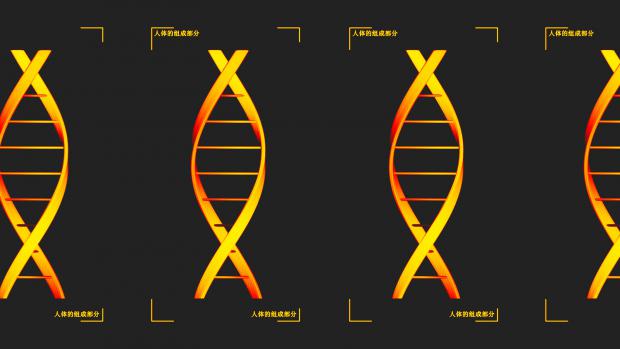
Breaking News
 Hard To See How EU Can Strike A Deal, Without Writing A Check
Hard To See How EU Can Strike A Deal, Without Writing A Check
 Trump Set To Sign Exec Order Boosting Domestic Coal To Meet AI Power Demands
Trump Set To Sign Exec Order Boosting Domestic Coal To Meet AI Power Demands
 The Gold Standard Is Back - Stablecoins Need To Rethink What 'Backing' Really Means
The Gold Standard Is Back - Stablecoins Need To Rethink What 'Backing' Really Means
 Stocks Erase Early Gains As White House Pulls Trigger On 104% China Tariffs
Stocks Erase Early Gains As White House Pulls Trigger On 104% China Tariffs
Top Tech News
 Kawasaki CORLEO Walks Like a Robot, Rides Like a Bike!
Kawasaki CORLEO Walks Like a Robot, Rides Like a Bike!
 World's Smallest Pacemaker is Made for Newborns, Activated by Light, and Requires No Surgery
World's Smallest Pacemaker is Made for Newborns, Activated by Light, and Requires No Surgery
 Barrel-rotor flying car prototype begins flight testing
Barrel-rotor flying car prototype begins flight testing
 Coin-sized nuclear 3V battery with 50-year lifespan enters mass production
Coin-sized nuclear 3V battery with 50-year lifespan enters mass production
 BREAKTHROUGH Testing Soon for Starship's Point-to-Point Flights: The Future of Transportation
BREAKTHROUGH Testing Soon for Starship's Point-to-Point Flights: The Future of Transportation
 Molten salt test loop to advance next-gen nuclear reactors
Molten salt test loop to advance next-gen nuclear reactors
 Quantum Teleportation Achieved Over Internet For The First Time
Quantum Teleportation Achieved Over Internet For The First Time
 Watch the Jetson Personal Air Vehicle take flight, then order your own
Watch the Jetson Personal Air Vehicle take flight, then order your own
 Microneedles extract harmful cells, deliver drugs into chronic wounds
Microneedles extract harmful cells, deliver drugs into chronic wounds
 SpaceX Gigabay Will Help Increase Starship Production to Goal of 365 Ships Per Year
SpaceX Gigabay Will Help Increase Starship Production to Goal of 365 Ships Per Year
States Move To Protect Americans' DNA From China

"You can actually take someone's DNA, take their medical profile, and you can target a biological weapon that will kill that person or take them off the battlefield or make them inoperable," Rep. Jason Crow (D-Colo.), a member of the House Intelligence Committee, said during the 2022 Aspen Security Forum.
"There are now weapons under development, and developed, that are designed to target specific people."
One fear is that the DNA gathered by consumer genetic testing companies routinely used by Americans to trace ancestry or find relatives could fall into the wrong hands. In 2023, a hacker exposed the genetic data of about 7 million users of 23andMe.
When the company announced on March 23 that it had filed for Chapter 11 bankruptcy, some privacy experts advised consumers to delete their data—a service that the company says it has always offered consumers.
"What we're witnessing with 23andMe is a stark wakeup call for data privacy," said Adrianus Warmenhoven, a cybersecurity expert at NordVPN. "Genetic data isn't just a bit of personal information—it is a blueprint of your entire biological profile. When a company goes under, this personal data is an asset to be sold with potentially far-reaching consequences."
And while more Americans use consumer DNA testing services, lawmakers on Capitol Hill have been unable to advance bills to prevent foreign adversaries from collecting genetic information from U.S. citizens, despite bipartisan support.
Most of the legislation to protect DNA is occurring at the state level.
As of November 2024, 13 states have enacted laws regulating direct-to-consumer genetic testing and ensuring that consumers have the power to protect their DNA. They are: Alabama, Arizona, California, Florida, Kentucky, Maryland, Montana, Nebraska, Tennessee, Texas, Utah, Virginia, and Wyoming.
At least 11 states—Arizona, Utah, Nebraska, Tennessee, Kansas, Montana, Arkansas, Texas, Louisiana, West Virginia, and Rhode Island—introduced bills this spring to block China and other adversaries from gaining access to genetic data through sequencing equipment and software and to forbid DNA information from being stored overseas.
As of April 1, Utah's bill failed, while Tennessee passed its measure into law.
Montana state Sen. Daniel Zolnikov told The Epoch Times that states needed to take the lead to protect DNA privacy from foreign adversaries such as China because Congress has failed to keep up with the threats.



